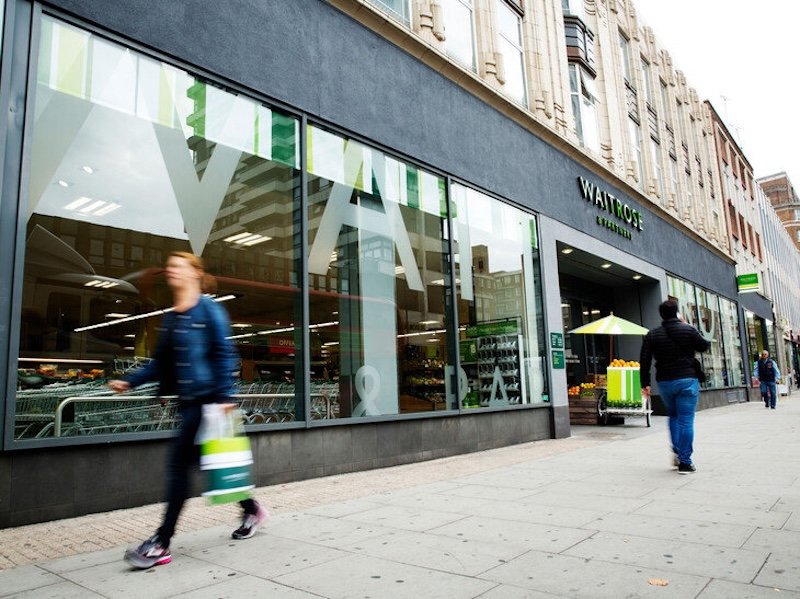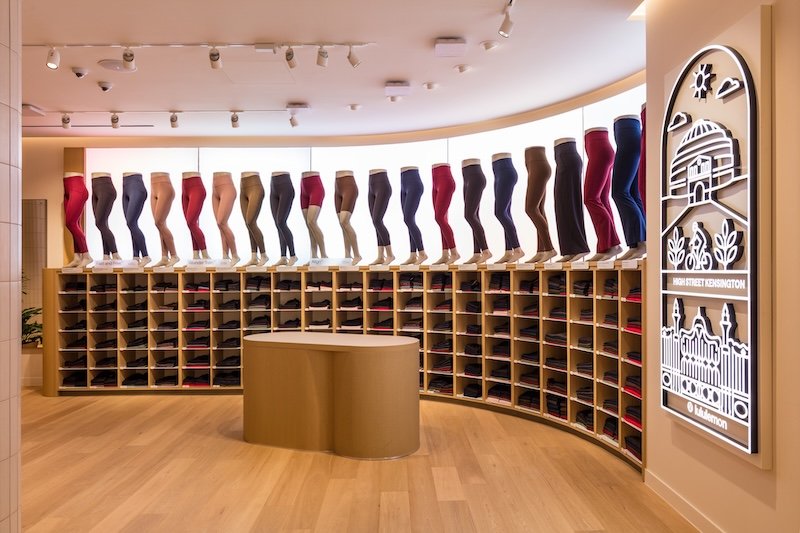RTIH rustles up five retail technology questions for Jim Herbert, CEO at Patchworks
RTIH asks major players in the retail technology space for their thoughts on the sector, and throws in a random question to keep them on their toes. This time around, our five questions go to Jim Herbert, CEO at Patchworks.
RTIH: Looking at the hottest retail technologies right now, check-out free stores, rapid delivery services, the metaverse and NFTs, automation and robotics, and blockchain technology, which ones stand out to you, and for what reason?
JH: To be honest, I’d have to say automation. For years we’ve spoken about being omnipresent, with many trying and failing to achieve seamless and effortless, high quality consumer experiences.
But, not only that, we’re only now beginning to truly be able to analyse data across every touchpoint of the customer journey, allowing for automation. It’s vital for success in the current retail landscape.
Consumers are picking and choosing the channels they shop on depending on convenience, whether that’s traditional stores, via a brand’s website, or in the metaverse.
But, the only way for retailers to ensure they are meeting consumer expectations across these channels and driving growth is by having the right tech in place to connect the data. That is retail’s hottest trend this year.
Rapid delivery and NFTs might be nice to have, but when it comes down to it, being able to manage your stock levels, across channels, in the current climate is ultimately what will allow retailers to keep their heads above water.
RTIH: Which retail technology trend is overrated in your opinion?
JH: Got to be augmented reality.
Some people may argue AR is still in its early stages, but for me it doesn’t add anything to the retail experience. Aside from home improvement/furnishings, I’ve yet to see a compelling reason for retailers to adopt it and it’s been more of a marketing gimmick.
It requires a sophisticated system that can process vast amounts of data and display it seamlessly in real-time. However using a phone or tablet is not really a smooth and consistent AR experience, which can be frustrating for users.
It’s can also be expensive to develop and implement (though some SaaS providers are trying to address that), so quite hard to justify the spend for many brands in terms of its ROI.
When retail is struggling with increased costs this type of technology is definitely more of a nice to have, rather than something that will quickly impact the bottom line and streamline operations.
Despite these challenges, AR is still a promising technology with vast potential and a game changing device could come along that fixes the user experience. As the technology advances and becomes more accessible, we may see more innovative and practical applications emerge.
RTIH: What are the top five retail tech Twitter/LinkedIn accounts you can’t do without, and why?
JH: First up, James Gurd from Digital Juggler. James is an excellent e-commerce consultant and runs the Re:Platform podcast with Paul Rogers (which I was kindly invited onto as a guest).
Always a pleasure to be asked difficult questions, this time about our new BI solution. It’s great to listen to and his social accounts are a must for insights on the industry.
For my tech insights I’ll usually head to Computer Weekly’s Twitter account. Always the most up-to-date tech news. This title has been a large part of my life.
Oddly my dad's business ended up on the mailing list (odd because he ran a business selling bearings and transmission parts) so I got through school and uni with excellent weekly content.
Kate Hardcastle seems to always nail her LinkedIn content. She’s always out and about capturing the latest business trends and attending the industry events.
Another LinkedIn account I follow closely is the MACH Alliance’s page. We are seeing some great leaps in the composable space, and the alliance helps enterprise organisations navigate the complex modern technology landscape.
Having helped deliver a number of composable commerce projects recently, been joint head of the growth council, and extolled the virtues of a "best-of-breed" solution architecture my entire professional life, it's great to see these ideas becoming mainstream.
And last but not least, I have to shout out Kelly Goetsch, from commercetools. Always actively sharing great content on LinkedIn and connecting others within the industry.
RTIH: If you could have a dinner party with any five retail pioneers, dead or alive, who would they be and why?
JH: I always enjoy looking at the responses my peers provide for this slot. For me, they have to be really interesting characters.
I’ve always found Richard Branson’s entrepreneurial journey interesting to follow and I’m sure there’s plenty more stories he’d be able to share at a dinner party. He knows retail really well and has always been at the forefront of customer experiences.
Secondly, a bit of a curveball, but Rihanna! She became the wealthiest female singer in the world due to her focus on her beauty brand, showing that understanding your target audience and their pain points is key.
Next would be Estée Lauder. She didn’t want her customers to buy a lot of products, as she believed that you should never sell a person products that they don’t need.
Little did she know when she started selling skin care and makeup in beauty salons, demonstrating her products on women while they were sitting under hair dryers, that she would set the standard for the entire beauty industry for decades to come.
As I once worked with Gucci as he was joining as creative director, I’d love to talk to Alessandro Michele about the reinvention of one of the world's most iconic brands into something that once again all generations aspire too. It is an amazing story and obviously has an intriguing end.
To finish the table, someone who is a key partner and great dinner guest, Ian Moore, the founder of Excellent Zephyr.
RTIH: If you could un-invent one thing, what would it be?
JH: That is a tough question. Not necessarily specific to retail tech but one thing that I would love to un-invent would be petty bureaucracy.
The biggest reason is the fact it discourages creativity and stifles innovation. It can also stop you from finding individuals who don’t necessarily fit the traditional mould.
With that being said, it’s important to strike a balance, allowing for individuality and innovation at work but repeatable scalable processes. For me, it’s about creating a work environment that encourages creativity, inclusivity, and a positive work culture based on delegated authority.
Based on the work we do at Patchworks, we have to be able to communicate with people candidly, whether that’s partners or senior leaders at retail brands. Connections matter so much to us and this can only happen when you build relationships in a straightforward and open way.















Continue reading…